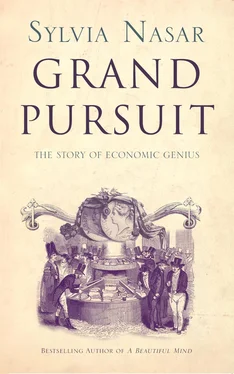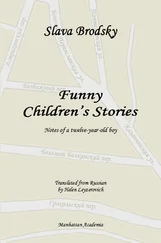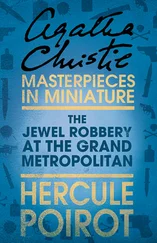Tragically, the new balance would prove no more durable than the original one. “No sooner is the laboring class comfortable again,” Malthus wrote sadly, “than the same retrograde and progressive movements with respect to happiness are repeated.” 13Trying to raise the average standard of living is like Sisyphus trying to roll his rock to the top of the hill. The faster Sisyphus gets almost there, the sooner he triggers the reaction that sends the boulder tumbling down the slope again.
Attempts to flout the law of population were doomed. Workers who held out for above-market wages wouldn’t find jobs. Employers who paid their workers more than their competitors did would lose their customers as higher labor costs forced them to raise prices.
For Victorians, the most objectionable implication of Malthus’s law was that charity might actually increase the suffering it was intended to ease—a direct challenge to Christ’s injunction to “love thy neighbor as thyself.” 14In fact, Malthus was extremely critical of the traditional English welfare system, which provided relief with few strings attached, for rewarding the idle at the expense of the industrious. Relief was proportional to family size, in effect encouraging early marriage and large families. Conservative and liberal taxpayers alike found Malthus’s argument so persuasive that Parliament passed, virtually without opposition, a new Poor Law in 1834 that effectively restricted public relief to those who agreed to become inmates of parish workhouses.
“Please, sir, I want some more.” As Oliver Twist discovers after making his famous plea, workhouses were essentially prisons where men and women were segregated, put to work at unpleasant tasks, and subjected to harsh discipline—all in return for a place to sleep and “three meals of thin gruel a day, with an onion twice a week, and half a roll on Sundays.” 15The fare in most workhouses probably wasn’t as meager as the starvation diet Dickens described in his novel, but there is no doubt that these institutions topped the list of working-class grievances. 16Like most reform-minded middle-class liberals, Dickens considered the new Poor Law morally repulsive and politically suicidal and the theory on which it was based a relic of a barbaric past. He had recently returned from America with its “thousands of millions of acres of land yet unsettled and uncleared” and where the inhabitants were in “the custom of hastily swallowing large quantities of animal food, three times a-day,” 17and found the notion that abolishing the workhouse would cause the world to run out of food absurd.
Bent on striking a blow for the poor, Dickens began early in 1843 to write a tale about a rich miser’s change of heart, a tale that he liked to think of as a sledgehammer capable of “twenty times the force—twenty thousand times the force” of a political pamphlet. 18
A Christmas Carol, argues the economic historian James Henderson, is an attack on Malthus. 19The novel is bursting with delicious smells and tastes. Instead of a rocky, barren, overpopulated island where food is scarce, the England of Dickens’s story is a vast Fortnum & Mason where the shelves are overflowing, the bins are bottomless, and the barrels never run dry. The Ghost of Christmas Past appears to Scrooge perched on a “kind of throne,” with heaps of “turkeys, geese, game, poultry, brawn, great joints of meat, sucking-pigs, long wreaths of sausages, mince-pies, plum-puddings, barrels of oysters, red-hot chestnuts, cherry-cheeked apples, juicy oranges, luscious pears, immense twelfth-cakes, and seething bowls of punch, that made the chamber dim with their delicious steam.” “Radiant” grocers, poulterers, and fruit and vegetable dealers invite Londoners into their shops to inspect luscious “pageants” of food and drink. 20
In an England characterized by New World abundance rather than Old World scarcity, the bony, barren, anorexic Ebenezer Scrooge is an anachronism. As Henderson observes, the businessman is “as oblivious to the new spirit of human sympathy as he is to the bounty with which he is surrounded.” 21He is a diehard supporter of the treadmill and workhouse literally and figuratively. “They cost enough,” he insists, “and those who are badly off must go there.” When the Ghost of Christmas Past objects that “many can’t go there; and many would rather die,” Scrooge says coldly, “If they would rather die, they had better do it, and decrease the surplus population.”
Happily, Scrooge’s flinty nature turns out to be no more set in stone than the world’s food supply is fixed. When Scrooge learns that Tiny Tim is one of the “surplus” population, he recoils in horror at the implications of his old-fashioned Malthusian religion. “No, no,” he cries, begging the Spirit to spare the little boy. “What then?” the Spirit replies mockingly. “If he be like to die, he had better do it, and decrease the surplus population.” 22Scrooge repents, resolves to give his long-suffering clerk, Bob Cratchit, a raise, and sends him a prize turkey for Christmas. By accepting the more hopeful, less fatalistic view of Dickens’s generation in time to alter the course of future events, Scrooge refutes the grim Malthusian premise that “the blind and brutal past” is destined to keep repeating itself.
The Cratchits’ joyous Christmas dinner is Dickens’s direct riposte to Malthus, who uses a parable about “Nature’s mighty feast” to warn of the unintended consequences of well-meaning charity. A man with no means of support asks the guests to make room for him at the table. In the past, the diners would have turned him away. Beguiled by utopian French theories, they decide to ignore the fact that there is only enough food for the invited guests. They fail to foresee when they let the newcomer join them that more gatecrashers will arrive, the food will run out before everyone has been served, and the invited guests’ enjoyment of the meal will be “destroyed by the spectacle of misery and dependence.” 23
The Cratchits’ groaning board, wreathed with the family’s beaming faces, is the antithesis of Malthus’s tense, tightly rationed meal. In contrast to Nature’s grudging portions, there is Mrs. Cratchit’s pudding—“like a speckled cannon-ball, so hard and firm, blazing in half of half-a-quartern of ignited brandy, and bedecked with Christmas holly stuck into the top”—not large enough for seconds perhaps, but ample for her family. “Mrs. Cratchit said that now the weight was off her mind, she would confess she had had her doubts about the quantity of flour. Everybody had something to say about it, but nobody said or thought it was at all a small pudding for a large family. It would have been flat heresy to do so. Any Cratchit would have blushed to hint at such a thing.” 24
The Christmas spirit was catching. By the story’s end, Scrooge had even stopped starving himself. Instead of slurping his customary bowl of gruel in solitude, the new Scrooge surprises his nephew by showing up unannounced for Christmas dinner. Needless to say, his heir hastens to set a place for him at the table.
Dickens’s hope that A Christmas Carol would strike the public like a sledgehammer was fulfilled. Six thousand copies of the novel were sold between the publication date of December 19 and Christmas Eve, and the tale would stay in print for the rest of Dickens’s life—and ever since. 25Dickens’s depiction of the poor earned him satirical labels such as “Mr. Sentiment,” 26but the novelist never wavered in his conviction that there was a way to improve the lot of the poor without overturning existing society.
Dickens was too much a man of business to imagine that schemes for bettering social conditions could succeed unless they could be paid for. He was a “pure modernist” and “believer in Progress” rather than an opponent of the Industrial Revolution. Wildly successful while still in his twenties, he had gone too far on his own talent to doubt that human ingenuity was climbing into the driver’s seat. Having escaped poverty by making his way in the new mass-media industry, Dickens was impatient with conservatives such as Carlyle and socialists such as Mill who refused to admit that, as a society, “we have risen slowly, painfully, and with many a hard struggle out of all this social degradation and ignorance” and who “look back to all this blind and brutal past with an admiration they will not grant to the present.” 27
Читать дальше












